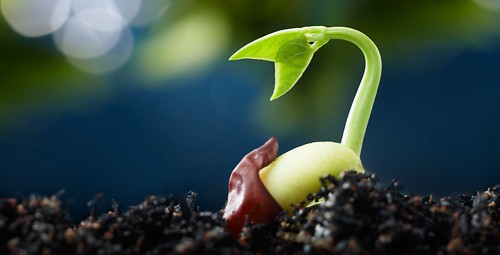
Did you know that corn and soybeans account for 50 percent of the harvested acres in the United States? Together, these two commodities had $106 billion in sales in 2012—not bad for products that start off as humble seeds. The U.S. seed industry is valued at more than $7 billion, and accounts for 34 percent of the world’s international seed trade. Our top seed exports are corn, soybean and sunflower seeds. And the international seed trade plays an intricate role in what we call the American way of life, providing us the products we know and love.
In today’s global market, limitations in manufacturing capabilities, shifts in climate, or simple geography all impact a country’s ability to satisfy all of its own needs. This means economies and agriculture systems around the globe are interconnected. Through trade, countries are able to market their resources to boost their economies and ensure access to a stable supply of food and products.
In 1958, realizing how vital international trade is worldwide, several countries created the Organization of Economic Cooperation and Development (OECD) with the sole purpose of encouraging efficient and economical international trade. The primary purpose of the OECD Seed Schemes—a division of the OECD—is to promote the use of agriculture seed that’s consistently high quality. Certified seeds are produced and officially controlled according to common harmonized procedures.
Without international standards and regulations in place to oversee the verification and certification of seeds, U.S. citizens wanting imported products would have to just take the word of foreign dealers without additional assurance that they are purchasing a quality product. The absence of these standards and regulations could also cause potentially devastating shortages and increased prices. Essentially, reduced reliability of agricultural seed imports would mean disrupted markets and increased uncertainty.
The OECD Seed Schemes means stability for America. Nations and global seed companies want to buy from businesses that are reputable and backed by organizations that require quality standards. These standards guarantee a level of safety for the buyer by ensuring processes are in place to oversee and validate the claims made on the products they purchase. Together, these efforts create industry standards that raise the quality bar for all agricultural and vegetable seed being traded.
Today, fifty eight nations participate in the Seed Schemes program. They set seed certification standards and regulations in support of international seed trade and ensure that all decisions made are fair and binding. In the United States, USDA’s Agricultural Marketing Service (AMS) acts as the U.S. representative to the OECD Seed Schemes. AMS works to ensure that the American seed industry and its consumers have a readily available supply of high quality seed whether it is purchased domestically and abroad.
For ordinary citizens like you and me, this means that the availability, quality, flavor, taste, and the price of our favorite products is the same today as it was yesterday. If you’re a seed producer and want information about how to get your seed certified through the OECD Seed Schemes, you can contact our office or your State seed certification office.


